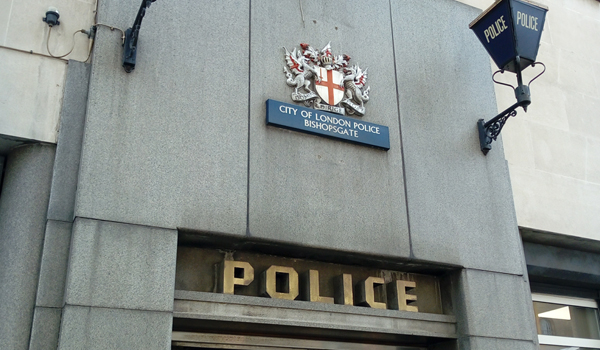City of London Police first force to screen suspects for ADHD
City of London Police is the first force in the country to screen detainees in custody for Attention Deficit Hyperactivity Disorder (ADHD).
The aim of the pilot is to help identify those with ADHD entering the criminal justice system at an early stage, allowing for a quick referral for diagnosis and get them the support they need.
This will give a better understanding of the crimes committed by those with ADHD and help prevent reoffending, the force said.
The checklist has been devised by qualified counsellor and therapist Sarah Templeton, chief executive officer of the charity ADHD Liberty, who has already worked in four English prisons.
She says the checklist helps ensure that there is a pathway to diagnosis with urgent cases being fast-tracked to an NHS provider of adult ADHD assessments.
Dame Sally Coates’ HMIP report in 2021 suggested that it would be “reasonable to assume that at least 50 per cent of prisoners have some form of neurodivergence”. SMs Templeton believes the figure is considerably higher.
City of London Police Detective Chief Inspector Anna Rice said: “Being the first police force to adopt ADHD screening shows we are leading the way in supporting vulnerable suspects who enter the criminal justice system in our custody.
“The pilot will identify undiagnosed ADHD among detainees, supporting them and ensuring they are processed fairly.
“This comes soon after we were the first in the country to have successfully used a new mental health and neurodevelopmental checklist when dealing with suspects.
“People’s mental health is very important to us and we’ll continue champion initiatives that secures the most appropriate outcome for those suspects with neurodiversity whilst obtaining positive outcomes for the victims.”
City of London Police says the new pilot dovetails with the mental health checklist already incorporated in processing suspects through the criminal justice system.
The mental health checklist, developed by the Crown Prosecution Service (CPS) and the National Police Chiefs’ Council, aims to improve the depth and quality of information provided to CPS prosecutors before they make charging and case management decisions. It also helps to ensure that suspects and defendants with mental health conditions or disorders are accurately identified.
Ms Templeton said: “We’ve been working for seven years to raise awareness about the number of prisoners with ADHD and we’re beyond grateful to the City of London Police for being the first force to be involved in the pilot.
“It will prove how many people being held in police stations have undiagnosed ADHD. A mental health nurse I have spoken to, who has worked in prisons for 20 years, puts the rate of ADHD at 85 per cent. It shows how serious the problem is.
“Our goal is to screen current prisoners and those in police custody and medicate those with ADHD. We want all forces to follow the City of London’s stance as it will greatly improve our understanding of the issues and help prevent reoffending.”
Working alongside Ms Templeton has been Detective Constable Daley Jones from the Metropolitan Police Service, who is also a trustee of ADHD Liberty. He has been involved in the project from the start and set up The ADHD Alliance to help spread the message to other forces.


